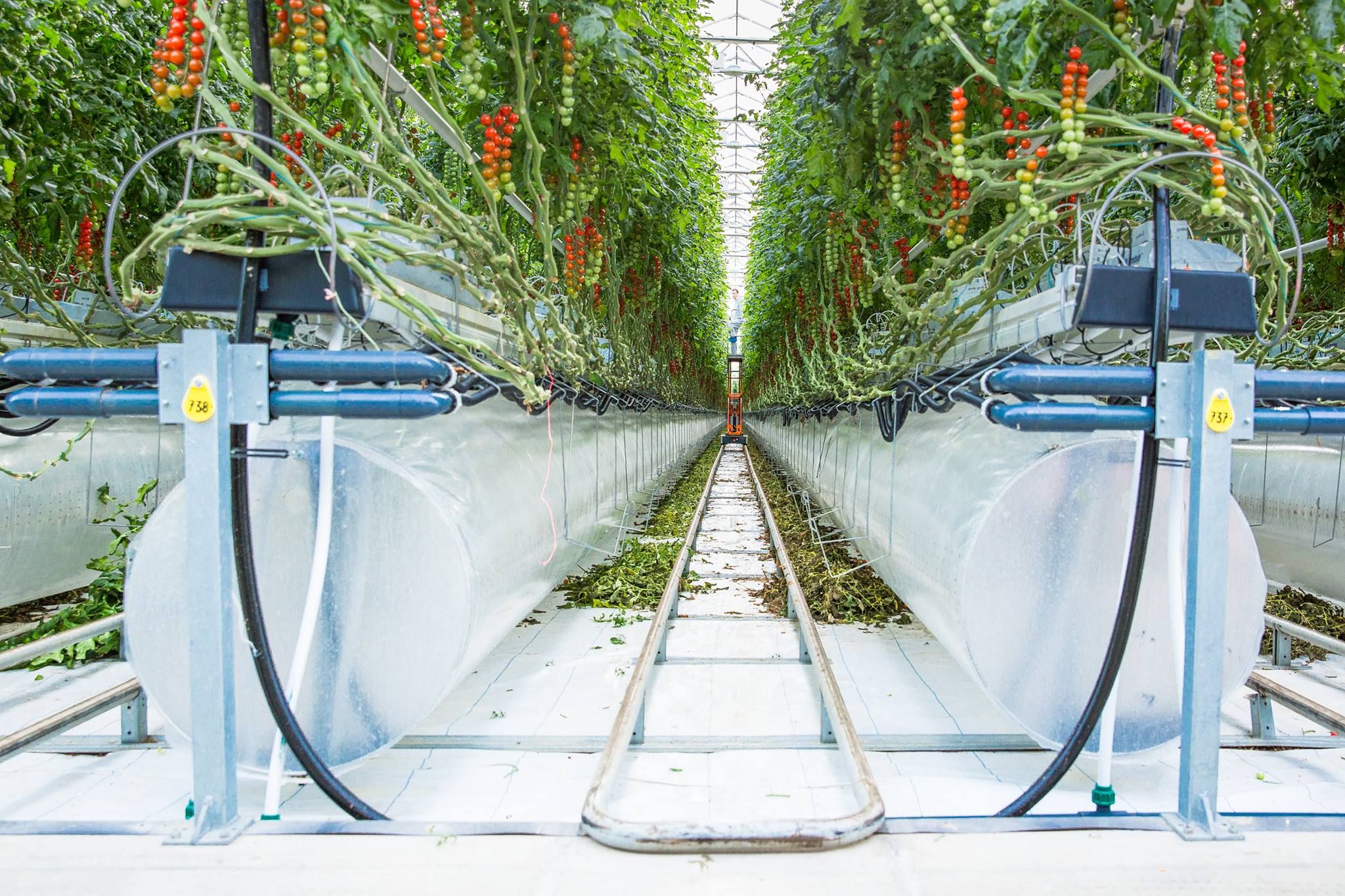Smart farming for food security

The UAE consumes more than 80 per cent of its freshwater resources to produce less than 15 per cent of its food supply according to government statistics.
This is not the most efficient use of a precious resource and as the world’s freshwater supply becomes ever scarcer, there is an urgent need to establish a more secure and sustainable food supply.
Several GCC states have resorted to buying land in more fertile countries to ensure food security for their populations, but one startup has engineered a more advanced solution.
Pure Harvest Smart Farms has built one of the region’s first hi-tech, fully climate-controlled greenhouses near Al Ain in the UAE to hydroponically grow high quality produce and sell directly to retailers. The food, in its case tomatoes, is grown not in soil, but a coconut shaving solution without the need for pesticides or fertilisers. Each plant is monitored by sensors which relays information back on how much water it requires and when. This enables more efficient use of water and cuts back on wastage.
At the core of the technology is an Internet of things (IoT)-enabled form of agriculture, which can accurately manage the climate management system in the greenhouse to enable year-round production.
“Our farm was designed to accommodate the unique micro-climate of the specific GPS-coordinate of our existing farm site,” says Sky Kurtz, co-founder and chief executive officer at Pure Harvest. “All future farms will do the same – adding or subtracting technology and investment needed to optimise plant growth.”
Hydroponic farming is seven times more efficient in its water usage according to Kurtz. Currently, some 10-14 kilograms of food is produced per square metre of farmland in the UAE, but Pure Harvest claims it can yield as much as 10 times that, but it is an expensive venture. The process is energy intensive and the upfront costs are substantial.
But it’s a technology that has already taken off in Europe and the US. More so, it does not require arable land, but rather space that has a steady water supply and good transport infrastructure.
“All of these innovations serve to not only enable our farms to produce fresh fruits and vegetables more efficiently and reliably, but they also lead to dramatic quality improvements,” says Kurtz.
The farm is churning out “tremendous amount of data” according to Kurtz, related to the performance of its crops, climate system and consumer feedback, which the company is using to make improvements in all aspects of its operations including seed selection, irrigation, production management and packaging.
Compared to other regions in the world, the Middle East and North Africa (Mena) uses the highest amount of water in agriculture, which yields poor gross domestic product (GDP) results.
The region as a whole imports 50 per cent of its foods, but that figure rises to a drastic 90 per cent for some countries in the GCC. This dependence on food imports will likely rise with the threat of climate change.
The damage climate change is inflicting is already visible and according to research from Germany’s Max Planck Institute for Chemistry and the Cyprus Institute in Nicosia, midday temperatures in the Mena region could reach 50 degrees Celsius by the end of this century – too hot to grow many foods. For every centigrade degree above 30, there is a 10 per cent loss in yield in grains like rice, wheat and maize according to the Worldwatch Institute.
For Kurtz, smart farms is one of the ways to ensure food security in arid and extreme climates. The company now plans to launch a $10 million Series A capital raise early next year to expand its footprint in the UAE and build its first facility in Saudi Arabia.


